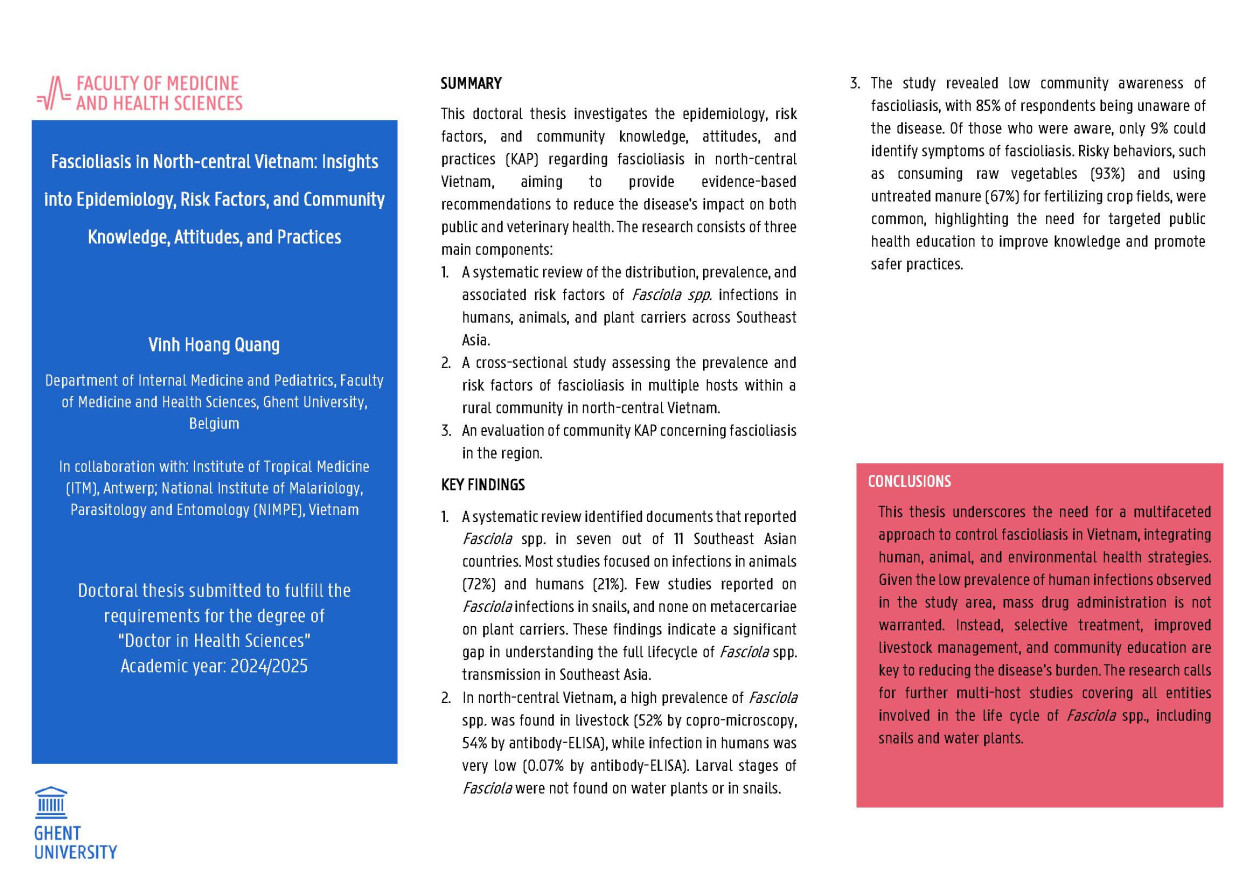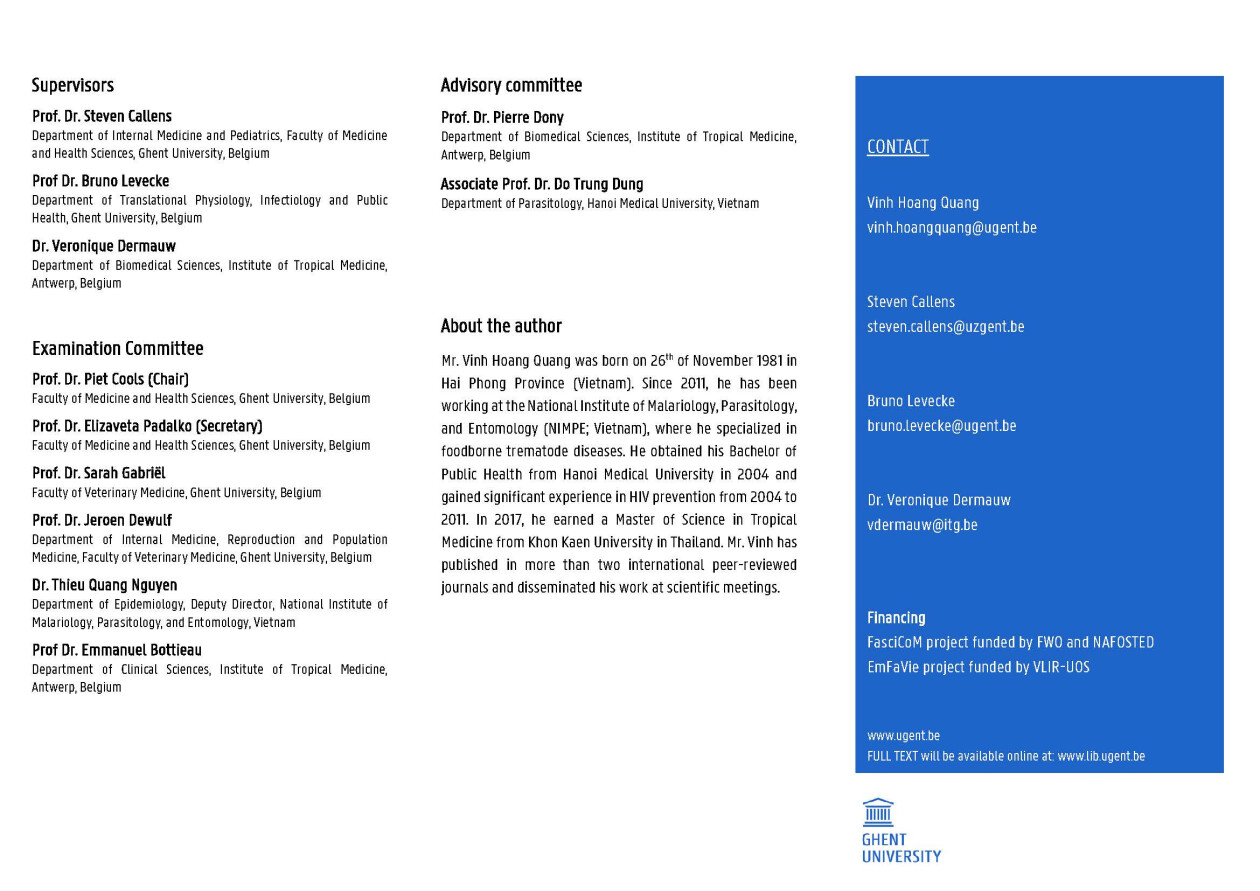PhD defence Vinh Hoang Quang
Ghent University, Campus UZ Gent, Classroom 4.1, entrance 42, 3K3, Corneel Heymanslaan 10, 9000 Ghent
Toon routeSupervisors
Prof. Dr. Steven Callens (Ghent University)
Prof. Bruno Levecke (Ghent University)
Dr. Veronique Dermauw (ITM)
Abstract
This doctoral thesis investigates the epidemiology, risk factors, and community knowledge, attitudes, and practices (KAP) regarding fascioliasis in north-central Vietnam, aiming to provide evidence-based recommendations to reduce the disease's impact on both public and veterinary health. The research consists of three main components:
A systematic review of the distribution, prevalence, and associated risk factors of Fasciola spp. infections in humans, animals, and plant carriers across Southeast Asia.
A cross-sectional study assessing the prevalence and risk factors of fascioliasis in multiple hosts within a rural community in north-central Vietnam.
An evaluation of community KAP concerning fascioliasis in the region.
KEY FINDINGS
A systematic review identified documents that reported Fasciola spp. in seven out of 11 Southeast Asian countries. Most studies focused on infections in animals (72%) and humans (21%). Few studies reported on Fasciola infections in snails, and none on metacercariae on plant carriers. These findings indicate a significant gap in understanding the full lifecycle of Fasciola spp. transmission in Southeast Asia.
In north-central Vietnam, a high prevalence of Fasciola spp. was found in livestock (52% by copro-microscopy, 54% by antibody-ELISA), while infection in humans was very low (0.07% by antibody-ELISA). Larval stages of Fasciola were not found on water plants or in snails.
The study revealed low community awareness of fascioliasis, with 85% of respondents being unaware of the disease. Of those who were aware, only 9% could identify symptoms of fascioliasis. Risky behaviors, such as consuming raw vegetables (93%) and using untreated manure (67%) for fertilizing crop fields, were common, highlighting the need for targeted public health education to improve knowledge and promote safer practices.
CONCLUSIONS
This thesis underscores the need for a multifaceted approach to control fascioliasis in Vietnam, integrating human, animal, and environmental health strategies. Given the low prevalence of human infections observed in the study area, mass drug administration is not warranted. Instead, selective treatment, improved livestock management, and community education are key to reducing the disease's burden. The research calls for further multi-host studies covering all entities involved in the life cycle of Fasciola spp., including snails and water plants.
Schedule
Defence: 2-4 pm


Spread the word! Deel dit evenement op